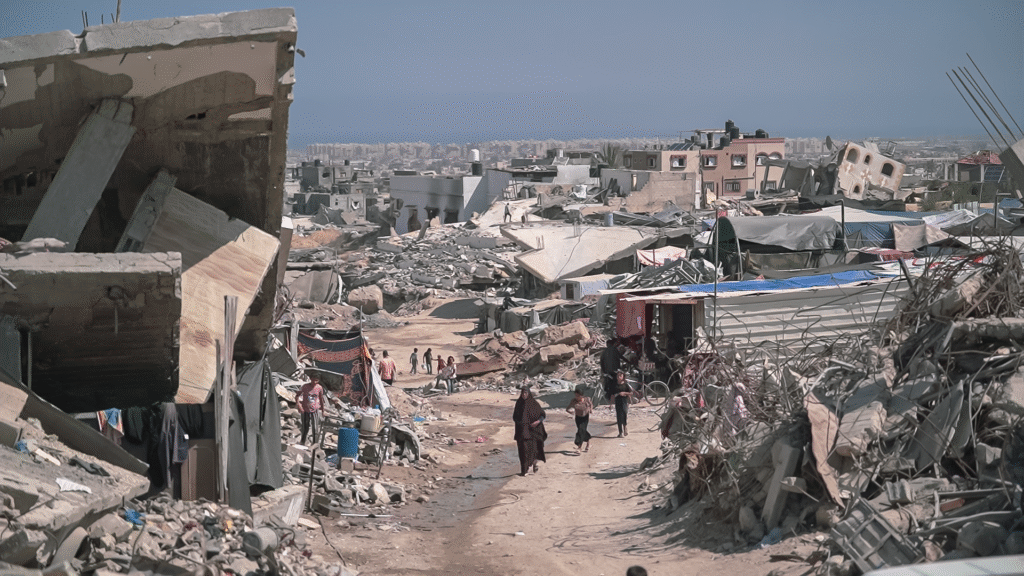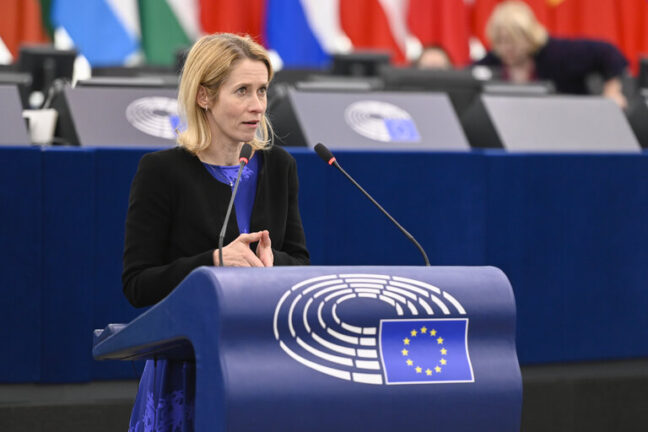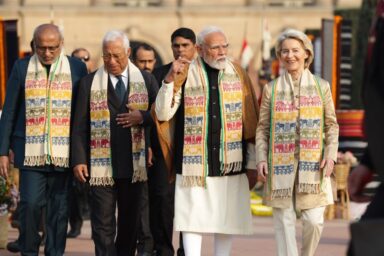Iran must never develop a nuclear bomb and the only acceptable solution of the current Iran-Israel crisis is a diplomatic one. The EU’s top diplomat said so after Tuesday’s meeting of the bloc’s foreign ministers. Work on a revision of the EU-Israel Association Agreement will proceed with concrete results to be announced on June 23th.
“The ministers called on all parties to respect international law, show restraint, and avoid actions that could get out of control,” said Kaja Kallas. The High Representative of the EU for Foreign Affairs and Security Policy spoke to reporters on Tuesday after the meeting of EU foreign ministers. “We all agreed on the urgent need to deescalate the situation. Iran must not get a nuclear bomb and diplomacy is the solution to prevent this. The EU will play its role in this,” she added.
Iran must not get a nuclear bomb. – Kaja Kallas, High Representative of EU for Foreign Affairs and Security Policy
At a press briefing after the meeting, Ms Kallas did not explicitly answer the question which side was to blame for the fresh escalation. The latest round of hostilities started on 13 June when Israel launched a series of aerial attacks on Iran, killing a number of top military officers as well as civilians. The attacks targeted military sites throughout the country. In retaliation, Tehran fired a barrage of rockets on Israel. The number of casualities, including civilians, keeps rising on both sides.
Israel’s justification for attacking Iran is an effort to stop Tehran’s nuclear programme. Tel Aviv suspects that Tehran covertly intends to develop a nuclear bomb. Iran denies the allegation, calling the Israeli attack a “war crime”.
Agreement revision in the works?
Ms Kallas assured reporters that the ongoing Iran-Israel crisis will not divert the EU’s attention away from the dire situation in the Gaza Strip. Inhabitants of this territory suffer from acute lack of basic provisions including food, drinking water, and medicines. According to rescue workers and eye witnesses, Israeli forces kill between 50 and 100 people every day in Gaza. Many of the victims were desperately searching for food close to aid distribution centres.

With the situation in Gaza in view, EU is seeking to review the EU-Israel Association Agreement which provides the framework for political and economic cooperation between the EU and Israel. Attention now focuses on Article 2 of the agreement that deals with Israel’s compliance with human rights and democratic principles. It is an essential element of the agreement which entered into force in June 2000.
Though Ms Kallas had earlier said that there was “a strong majority in favour of a review of Article 2 of the Association Agreement with Israel”, the situation remains unclear. The formal request to review Israel’s compliance with Article 2 has been recently made by the Netherlands, citing Israel’s blockade of humanitarian aid deliveries to the Gaza Strip and the proposed new system for aid distribution as being incompatible with international humanitarian law and principles.
You might be interested
There is a strong majority in favour of a review of Article 2 of the Association Agreement with Israel. – Kaja Kallas, High Representative of the EU for Foreign Affairs and Security Policy
Not ready yet
The Dutch position has the backing of 17 EU member states; Czechia and Hungary were among those who opposed the move. Suspension by the EU of an international agreement, however, requires the Council to adopt a decision suspending such an agreement. Such a decision, in turn, requires unanimity.
Ms Kallas also fielded questions whether the block prepared any new pressure on Israel. “Of course, there are 27 states at the table and different views do exist (…) The common position is not ready yet,” the Commission Vice-President replied. The Foreign Affairs Council is to announce any new development on this matter after its next meeting on 23 June 2025.











